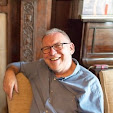 |
| Get Creative - one of three creativity festivals happening in May 2020 |
The saying goes, you wait ages for a bus and then three come
along at once. Well, it seems the same is true of festivals of creativity. Last
Friday I was at the magnificent Birmingham Museum and Art Gallery for a
creative festivals information meeting. There can't be many places where you
can admire one of the world's finest selections of pre-Raphaelite paintings
while waiting for a meeting to start.
I'd heard about the event through the Culture, Health and Wellbeing Alliance. The purpose of the morning was to let people know about not
one but three creative festivals taking place in May 2020 and, of course, to
encourage people to get involved. The collaborative partnership aims to turn
May into a month of creativity and culture through the coming together of three
initiatives:
- the Age of Creativity Festival: (which runs throughout May 2020)
- the Get Creative Festival: (9-17 May 2020)
- Creativity & Wellbeing Week: (18-24 May 2020).
Damien McGlynn, Project Manager for Get Creative, spoke on behalf
of all three festivals and explained what each one was about. The ambition,
said Damien, is to make May 2020 a month of creativity and culture, involving a
series of events across the UK, with the three linked festivals working as a collective.
The festivals are supported by a range of partnership organisations including
the Arts Council, Age UK, the BBC and Voluntary Arts.
The first of the three festivals is the Age of Creativity (1-31
May) - an opportunity to celebrate older people as creative audiences,
participants, volunteers and artists. As Damien pointed out, the term 'older
people' (as defined by Age UK) includes any individual over the age of 50. The emphasis
here is on creative or cultural events that are free (or low fee) and are 'age-friendly'.
The Get Creative Festival (9-17 May) is about inclusion and aims to give everyone the chance
to get actively involved in a creative event in their local area. Again, events
will be free or have just a small fee to cover costs, with an emphasis on participation.
As Damien made clear, "The festival doesn't programme events but
acts as a major platform for events, and sometimes this means shining a spotlight
on existing groups and activities."
Creativity & Wellbeing Week (18-24 May) follows on from Get Creative, and has a broad
theme of 'Positive Futures' (which includes areas such as mental health and
young people, public health and everyday creativity.) With a strong focus on
health and wellbeing, Creativity & Wellbeing Week, like the other two
festivals, supports creative and cultural activity at no cost (or a low fee to
recover costs.)
More events are planned, including a launch of Creativity
& Wellbeing Week at the National Portrait Gallery on 18 May and a
collective event in York in 15 May, where the question "Does creativity
need a public health campaign?" will be discussed. In the meantime, even
if the details are not yet finalised, artists and organisers are being encouraged
to begin submitting their events for inclusion on the websites of the relevant festivals.




